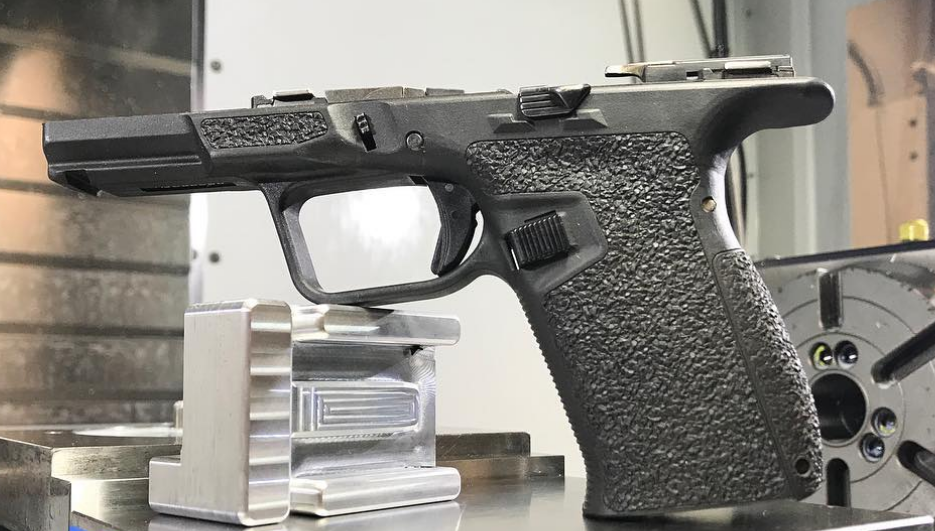

Recently, the Bureau of Alcohol, Tobacco, and Firearms (ATF) broadened its interpretation of “firearm.” Taking effect on August 24, 2022, ATF ruling 2021R-05F redefines a firearm frame or receiver, and ostensibly to “crackdown on ghost guns”. The ruling increases the burden on many small business owners/local gun shops, as those federal firearms licensees (FFL) are required to keep records of sales for life, instead of the previously required 20 years. As you look to add a new gun to your collection, consider how this new rule could affect how your “firearm” is defined, your possible cost burden, and other potential complications with building your next gun.
What is the ATF definition of a firearm?
Under the new ATF frame and receiver rule, the term “frame” now means the part of a handgun that provides housing for the sear or equivalent, that part that holds back the hammer, striker, bolt, or similar component prior to firing. This could align with the visual that many people think of when imagining a handgun frame.


Credit: @nomaddefense
What part of an AR is considered the firearm?
The term “receiver” means the part of a rifle or shotgun that provides housing for the bolt, breechblock, or other primary components designed to block or seal the breech prior to firing. But that is what an AR-15 upper receiver does. So what is the receiver on an AR-15? The ATF has stated that the lower receiver of the AR-15 will remain the serialized part of the firearm.


Credit: @sonsoflibertygw
Is ATF trying to ban 80% lowers?
Under ATF 2021R-05F unfinished gun kits are now considered equivalent to a finished frame or receiver, meaning they require serial numbers and FFL transfers to consumers. While not outright “banned”, the ATF has made 80% lower kits defined as a receiver. Numerous companies sell kits to facilitate building personal firearms and these kits usually consist of a blank frame, a jig, and tools to complete the frame. These kits were previously not regulated nor considered illegal. This also means that companies that were not required to be licensed as manufacturers will now require these licenses. The ruling adds complication for existing FFLs with these kits in inventory as they now need to be serialized before sales. This new licensing requirement and serialization ruling will add a tremendous logistic complication as well as significant expense to dealers, manufacturers, and consumers of these kits. If you are among the millions of law-abiding citizens who own these kits or parts you’re probably wondering, do I need to serialize my 80 lower? No, as an individual there is no requirement to serialize a firearm for your personal use.


Credit: @Polymer80inc
Can the ATF pass laws?
“Neither the President nor any federal agency has the power to make law,” says Cody J. Wisniewski, the Firearms Policy Coalition (FPC) senior attorney. FPC is leading the charge in fighting back against this ruling by filing a lawsuit on August 11, 2022. “The Final Rule defies the plain language of the [Gun Control Act].” Wisniewski went on to say. Other pro 2A organizations such as Gun Owners of America (GOA) are also suing the ATF over the new ruling,
“Congress must provide oversight by striking down ATF’s illegal gun registration rule using the Congressional Review Act and passing Rep. Michael Cloud’s No REGISTRY Rights Act to eliminate ATF’s billion-record gun registry,” said Aiden Johnston, GOA’s Director of Federal Affairs.
The American Suppressor Association (ASA) has also “opposed” this rulemaking.
If you would like to get involved, you can reach out to your State Representative to let them know how your POV about ATFs 2021R-05F.
Conclusion
ATF 2021R-05F took effect on August 24, 2022, and changed the definition of what is a firearm, and led to more serialization and registration. The new FFL requirements to serialize existing inventory and to increase their record retention to the life of the license adds complexity to the businesses and to consumers’ right to bear arms. Many are opposing this ruling, saying it is an attempt for a regulatory body to enact a law. If you would like to voice your opinion you can connect with your Congressperson or organizations including FPC, GOA, and ASA.





